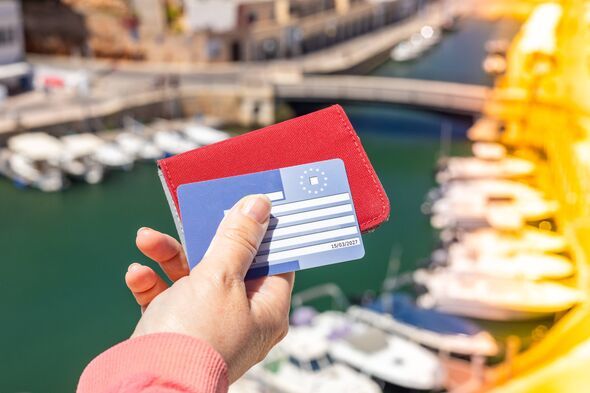

Britons dreaming of a sunny European retreat this summer should act swiftly to ensure they snap up a vital card at least 15 days before they jet off. This complimentary resource provides access to free or subsidised medical care whilst abroad.
The UK Global Health Insurance Card (GHIC), successor of the erstwhile European Health Insurance Card (EHIC), is indispensable for holidaymakers. Despite travel insurance being highly advised, the GHIC affords travellers the opportunity to use public health services across many European countries at reduced costs or even for free. The NHS has confirmed: "The UK Global Health Insurance Card (GHIC) lets you get necessary state healthcare in the European Economic Area (EEA), and some other countries, on the same basis as a resident of that country. This may be free or it may require a payment equivalent to that which a local resident would pay."

If you hold an EHIC that's still in date, fret not - it remains valid until it expires. Following that, you'll need to obtain a new GHIC. Keep in mind that the process of receiving your GHIC through the post could take up to 15 days; hence, applying in good time before your planned departure is essential, reports Liverpool Echo.
Here's how to applyUK residents are eligible for the GHIC, and the application can cover members of one's family. During the application process, be prepared to provide:
Each person covered requires a separate card. Your spouse, civil partner, and children can all be included in one collective application.
First off, you need to fill in your personal details before you can move on to ask for more cards as directed. If you've already applied and want to add extra family members, give the NHS Overseas Healthcare Services a ring.
It's crucial you provide them with your reference number, full name, date of birth, and address so they can pull up your records without a hitch.
After you flick off your application, expect to get an email from NHS within a day confirming if you're sorted or not (have a squizz at your spam just in case it's hiding there). They might ping you for some more info or extra paperwork before they say it's all systems go.
If you find yourself abroad waiting for your card but are in dire need of medical help, you can ask for a Provisional Replacement Certificate (PRC) to tide you over.
 Here's where you can whip out your card.
Here's where you can whip out your card.
Your card's good for getting hold of key government-funded healthcare when you're overseas and can't hang on till you get back to Blighty, commonly dubbed "medically necessary healthcare". It'll cover things like:
You'll have to touch base before hopping on the plane for treatments like kidney dialysis or chemo, since not every local health set-up is kitted out to offer these treatments.
The determination of whether treatment is medically necessary is made by the healthcare provider in the country you are visiting.
Healthcare provided by the state isn't always free outside the UK. You may be required to pay for treatments that are free on the NHS if a local resident would be expected to pay in the country you're visiting.
Before setting off, it's recommended to investigate the state-provided healthcare services in the country you're visiting and any potential charges you might face.
Information on how to access treatment in the country you're visiting can be found by checking the relevant country guide on GOV.UK.
However, a GHIC (or EHIC) card does not substitute travel and medical insurance or cover services like:
For this reason, the NHS advises that you also have private travel and medical insurance for the duration of your trip. A UK GHIC can be used when visiting:
If you fall into one of the following categories, you can use a UK GHIC:
The UK government is currently negotiating with various countries to expand the applicability of the UK GHIC, so it's always prudent to check coverage before your trip. For more information, visit the NHS website here.